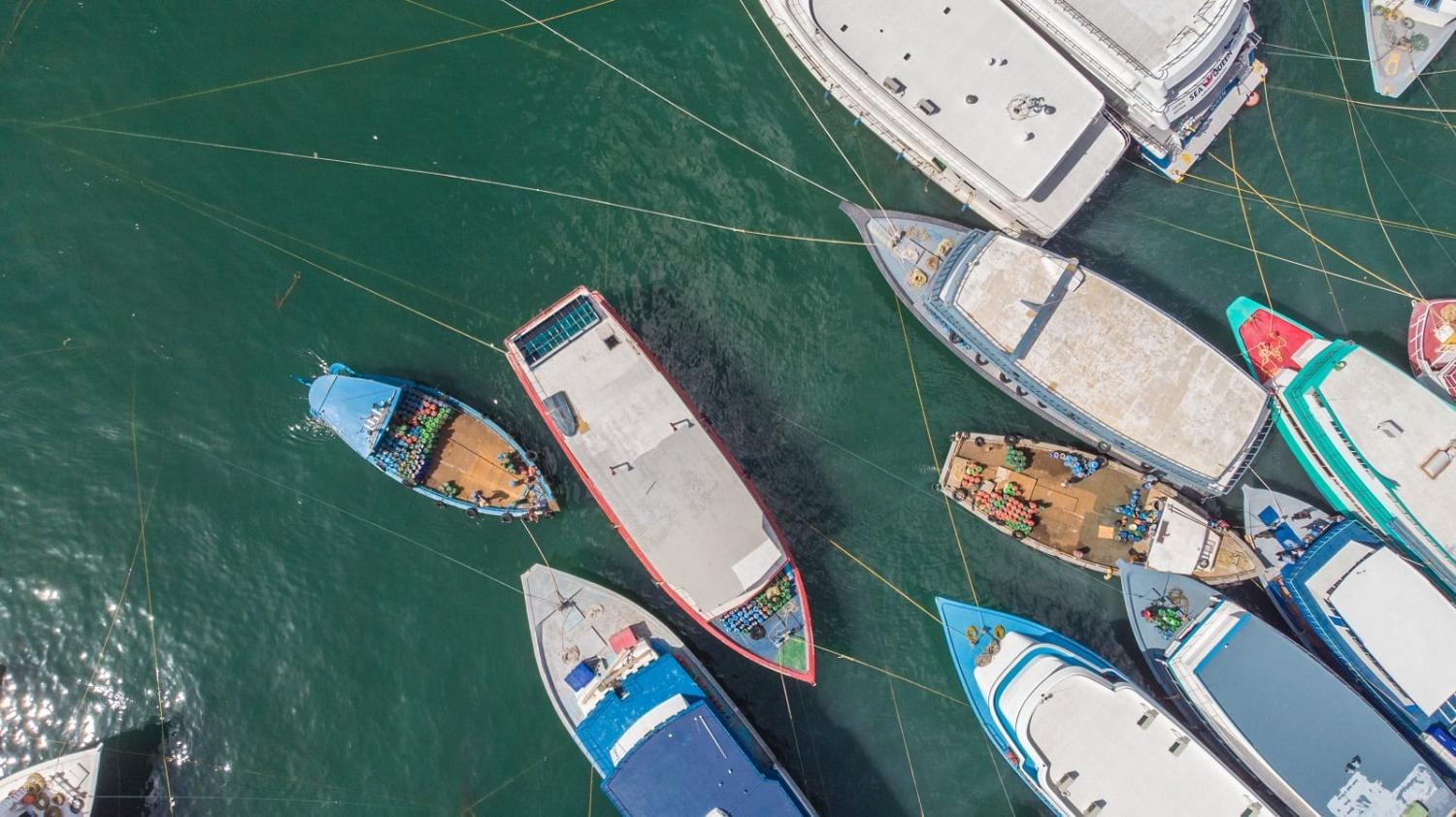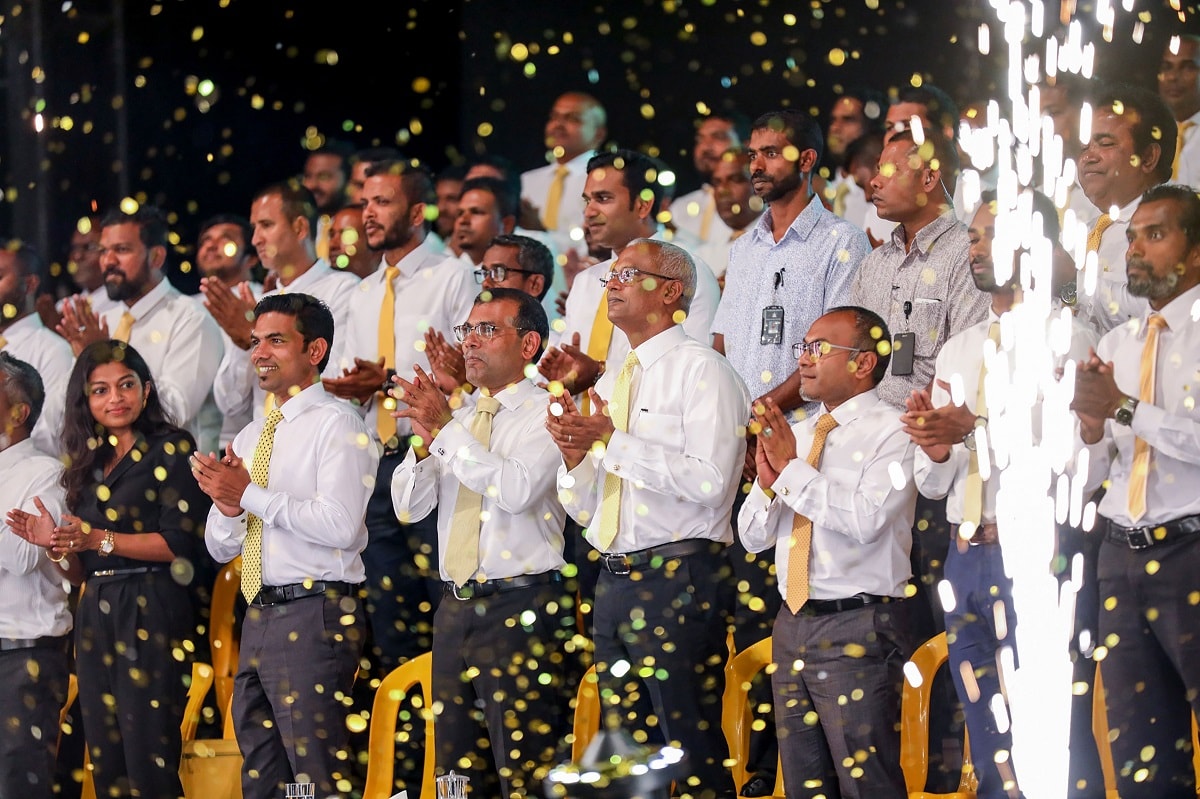JOHN KACHTIK

For the decade prior to Covid-19, China was the Maldives' biggest source of tourism. The pandemic changed all that, with arrivals dropping from 284,000 in 2019 to 34,000 in 2020. As a percentage of total tourism revenue, by 2021 China’s contribution to the Maldives dropped to less than one per cent.
As 2023 kicks off with China reopening its borders, the Maldives is holding its breath in anticipation of a returning influx of Chinese tourists. But 2023 is also a presidential election year and like any other country, the Maldives is not immune to geopolitics.
Approved Destination Status is a designation granted to countries by the Communist Party of China that allows its citizens to travel with fewer restrictions, making the status significant for tourism.
According to the government’s official figures, tourism accounted for 21.4 per cent of nominal GDP in 2021. However, if direct and indirect contributions are included, tourism is responsible for closer to 75 per cent of GDP according to the Asian Development Bank. Due to this dependence, the Maldives was one of the first countries to reopen its borders after initial Covid-19 closures. By July 2020, the country was eagerly welcoming tourists again, with India quick to replace China as the biggest source of tourism, just ahead of Russia.
Approved Destination Status (ADS) is a designation granted to countries by the Communist Party of China (CCP) that allows its citizens to travel with fewer restrictions, making the status significant for tourism. The Maldives was first granted ADS in 2002. According to The Baani Centre for International Policy, a Maldivian think tank with access to current and former Maldives government officials, during the 2008–12 term of President Mohamed Nasheed, China threatened to remove the Maldives’ ADS due to negotiations between Malé and Washington to allow suspected Uyghur terrorists detained at Guantanamo Bay to be resettled in the Maldives.
Nasheed was ousted in a coup in 2012 and was replaced by pro-China President Abdulla Yameen in 2013. In 2014, China’s leader Xi Jinping visited the Maldives, the first such visit by a Chinese head of state. Chinese tourism to the Maldives peaked at its all-time high the same year at more than 350,000 visitors. Xi’s visit initiated what was then dubbed a Maritime Silk Road partnership, eventually leading to China completing a major bridge project connecting the capital of Malé to its airport.
 Former Maldives President Mohamed Nasheed (3L) with current President Ibrahim Mohamed Solih (4R) at an election rally in February 2019 (Ahmed Shurau/AFP via Getty Images)
Former Maldives President Mohamed Nasheed (3L) with current President Ibrahim Mohamed Solih (4R) at an election rally in February 2019 (Ahmed Shurau/AFP via Getty Images)In 2018, with the election of President Ibrahim Mohamed Solih of the Maldivian Democratic Party (MDP), the geopolitical balance again shifted. Solih’s campaign platform included reducing dependency on China and warning of the threats from debt trap diplomacy. Once in office, Solih prioritised India over China. India’s Prime Minister Narendra Modi attended Solih’s inauguration in 2018 and again visited the Maldives in 2019, the first overseas trip of his second term.
Although Solih maintains a staunchly pro-India stance, he has also been careful not to offend China. Although Chinese tourism was off the table throughout 2022, as China now finally opens its borders, the economic weight of the China relationship will again come to bear. Last month, with much fanfare, a Beijing Capital Airlines flight, the first direct flight from China to the Maldives since the pandemic, landed in Malé carrying 193 passengers. China Eastern Airlines is also restarting direct flights this month.
For the 2023 Maldives presidential election, three major figures are in play.
China, for its part, is not above using “soft” and “sharp” power to influence another country’s political decision-making.
Representing the Progressive Party of Maldives (PPM), the pro-China Yameen is still the party’s figurehead. However, in December 2022, he was convicted for corruption – his second such conviction – and is currently in jail. PPM remains the biggest opposition block, but has focused most of its energy on its “India Out” campaign, resorting to fake news and thug-style protests, accusing the Solih administration of being too close to New Delhi. Yameen was previously named PPM’s presidential candidate for 2023, but with the party leader now in prison, it is unclear if PPM will name a new candidate.
For MDP, January saw an internal party primary election between President Solih and former President Nasheed, who is currently MDP’s Speaker of Parliament. Despite being from the same party, Solih and Nasheed have become bitter rivals. Solih won the primary with 61 per cent of the vote. Nasheed, who still commands significant party backing, is also the most vocally anti-CCP of any Maldivian politician. He will continue to vocalise any grievances towards China regardless of whether the Solih administration agrees.
China, for its part, is not above using “soft” and “sharp” power to influence another country’s political decision-making. In 2014, a territorial dispute between China and the Philippines in the South China Sea led to a drastic reduction in Chinese tourism to the resort island of Boracay. Australia, also familiar with China’s economic coercion tactics, felt the brunt of Beijing’s displeasure after then Prime Minister Scott Morrison called for an independent inquiry into the origins of Covid-19.
For the Maldives, with China again turning on the tourism tap in 2023, presidential candidates mindful of the economy will likely temper any criticism of Beijing. For the Maldives public, concerns over China’s debt trap diplomacy will feel more like the last election’s political issue. During the current Solih administration, the country’s biggest infrastructure project – a bridge from the capital to the industrial and waste management islands of Gulhifalhu and Thilafushi – went to an India contractor, not Chinese.
At the 2023 election, Chinese tourism dollars will be the simplest tool for Beijing to wield. PPM will remain pro-China and anti-India but has little chance of winning, apart from an MDP implosion. President Solih will discourage any official criticism of China for the sake of the economy.
Chinese tourism still has a few more months to ramp up, but it will be this year’s presidential election on 19 September that sets the tone of the Maldives–China relationship.
No comments:
Post a Comment